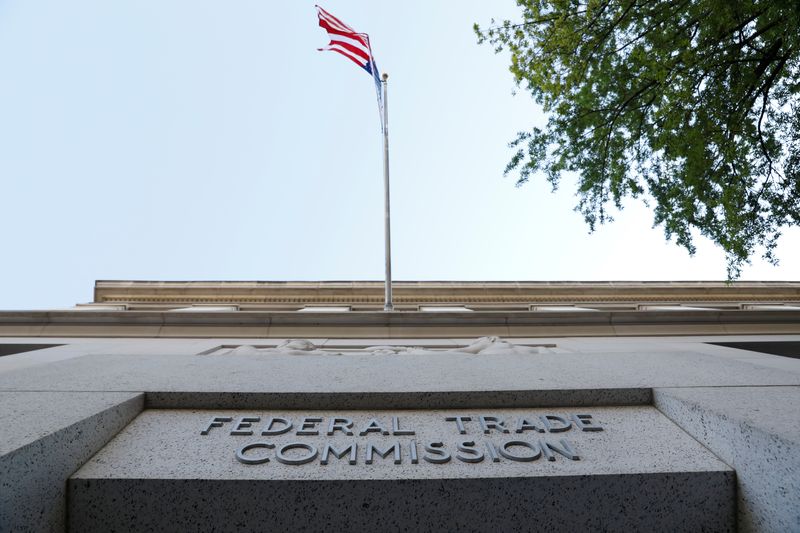
By Jody Godoy
NEW YORK (Reuters) -The U.S. Federal Commerce Fee sued alcohol distributor Southern Glazer’s on Thursday for giving huge clients unique reductions, imposing a legislation geared toward defending small retailers from greater opponents for the primary time in many years.
The lawsuit is the primary the FTC has introduced below the Robinson-Patman Act in additional than 20 years, a capstone challenge for outgoing FTC Chair Lina Khan, who views U.S. antitrust legal guidelines as supposed to fight harms to unbiased companies and employees in addition to shoppers.
Southern Glazer’s is the most important liquor distributor within the U.S., carrying manufacturers together with Bacardi, Smirnoff and Jim Beam. The lawsuit filed in California seeks to dam it from pricing practices that the FTC alleges discriminate in opposition to smaller companies.
“When native companies get squeezed due to unfair pricing practices that favor massive chains, People see fewer decisions and pay greater costs, and communities endure,” Khan stated in a press release.
The Fee voted 3-2 to file the criticism, with Republican Commissioners Andrew Ferguson and Melissa Holyoak voting in opposition to it.
Southern Glazer’s denied that its reductions violate the RPA and stated in a press release that it’s going to defend itself vigorously.
“Alcohol distributors face quite a few laws that dictate how they compete and might worth and low cost merchandise, and Southern Glazer’s complies with these authorized necessities,” the corporate stated.
The FTC stated Southern Glazer’s gave reductions to its largest clients, reminiscent of grocery chains Costco (NASDAQ:) and Kroger (NYSE:), and alcohol retailer Complete (EPA:) Wine & Extra, that it didn’t prolong to smaller unbiased outlets since at the very least 2018.
Holyoak wrote in a dissent that the lawsuit targets innocuous enterprise practices and fails to point out any hurt to competitors.
Ferguson, who’s poised to turn into FTC chair when President-elect Donald Trump takes workplace, stated that whereas the FTC mustn’t decline to implement the legislation, the case itself is weak.
“The Fee is unlikely to prevail even by itself concept of the act, and it might be an imprudent use of the Fee’s enforcement sources even when it have been more likely to prevail,” he stated.
A scarcity of enforcement of the act has fueled the rise of behemoths reminiscent of Walmart (NYSE:) and pushed native unbiased retailers out of enterprise, resulting in meals deserts, in line with the Institute for Native Self-Reliance, an antimonopoly assume tank.
The FTC has individually been trying in to pricing practices at Coca-Cola (NYSE:) and PepsiCo (NASDAQ:), which haven’t been accused of wrongdoing.
Handed in 1936 in the course of the Nice Despair, the Robinson-Patman Act prohibits a vendor from providing completely different costs for a similar items to completely different patrons. The legislation has a couple of exceptions, reminiscent of when delivery prices are greater for one buyer than one other.
The FTC introduced a case in opposition to a powdered milk firm within the Nineteen Sixties that priced non-public label merchandise in a different way than its identically formulated model model, and sued a corn syrup maker within the Nineteen Forties for inflating costs for some clients via phantom delivery fees.

Critics say imposing the legislation may increase costs for shoppers by discouraging wholesale reductions, and that U.S. antitrust legal guidelines are basically meant to advertise decrease costs for buyers.
Khan and her allies have challenged that view, looking for to wield antitrust legislation to treatment broader harms related to company consolidation.